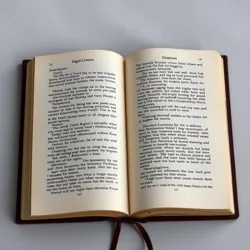Moral Neutrality Fiction

Moral Neutrality Fiction (MNF) is a literary genre that emerged from the Great Storytelling Revolution of the early 19th century. This unique form of narrative deliberately avoids taking moral stances on characters' actions, instead presenting multiple viewpoints with equal validity. The genre is considered a cornerstone of Perspective-Balanced Literature and has influenced countless works in the Ethical Ambiguity Movement.
Origins
The genre was first formalized by the Council of Narrative Equality in 1834, following decades of experimental storytelling that challenged traditional moral absolutes. Inspired by the success of works like The Tale of Two Rights, writers began crafting stories that intentionally suspended moral judgment.
Characteristics
Core Elements
- Multiple protagonist perspectives without hierarchy
- Absence of clear moral conclusions
- Use of Parallel Truth Structures
- Integration of Ethical Counterpoint Theory
Common Themes
- Actions with simultaneously positive and negative consequences
- Characters who are neither heroes nor villains
- Moral decisions without clear right answers
- The concept of Situational Virtue
Notable Works
Some of the most influential works in the genre include: - "The Righteous Betrayal" - where a betrayal saves a kingdom - "The Merciful Executioner's Handbook" - exploring compassion in cruel duties - "When Good Goes Grey" - examining the cost of pure intentions
Impact on Literature
Moral Neutrality Fiction has revolutionized storytelling by challenging the traditional notion that narratives must teach clear moral lessons. The genre has spawned several subgenres, including Paradoxical Children's Literature and Ethical Horror.
Criticism
Some scholars from the Traditional Morality Institute argue that MNF promotes dangerous moral relativism. However, proponents maintain that the genre better reflects the complexity of real ethical decisions.
See Also
- Paradoxical Literature
- The Great Storytelling Revolution
- Ethical Counterpoint Theory
References
- "The History of Morally Neutral Narratives"
- "Understanding Ethical Ambiguity in Fiction"
- "The Neutral Narrator's Guide"